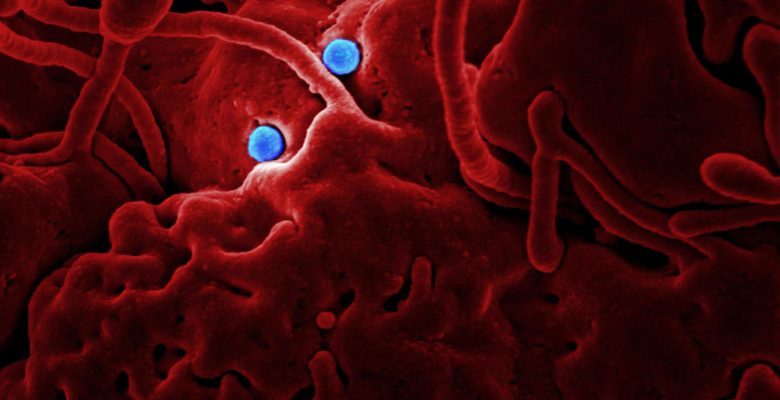Hello virus. I haven’t met you personally, thank God. You haven’t visited my mum and my stepfather, my sister and her family, or my best friends here in England. They’ve all passed under your radar.
You have turned me into a semi-caged hermit, who goes round the park early in the morning, without even a dog. It’s different now: the skies are clearer, thanks to the fraction of normal air and road traffic, the air tastes almost scented. Breathing has become a pleasure. The spring blossom is incandescent, so beautiful it makes me stare. I spied a woodpecker drilling for its breakfast the other morning: that made me stare too. So much beauty in such bloody awful circumstances.
Just weeks before the lockdown started I got a new job in London. It’s a good job with a good organisation, a decent salary, and regular travel across Europe. Except now I’m working from home in Brighton, typing all day, and jumping on the trampoline in the yard between emails and zoom calls and Skype and WhatsApp and yes maybe this is why I talk to myself too much at the moment. Don’t we all?
I have a few friends who are really struggling at the moment. One tells me she hasn’t actually been in the same room as another person for a month now. The only people she’s seen are men in masks who deliver food to her front door. You have stalked her city, Barcelona, leaving people reeling from grief and anger. They’re just beginning to stagger out of their apartments now, blinking like bats in sunlight.
I don’t live alone, but still feel quite stir-crazy after these weeks of mimicking a battery hen, despite the park, and boxing three times a week with my brother. My friends in small apartments, cheek-by-jowl with neighbours and no outdoor space are having a hard time. Many people are having a hard time now just putting food on the table, or trying to avoid a beating from someone in their family. The Government admits “society will be dealing with the devastating consequences [of domestic violence] for a generation”
Food shopping is the event of the week. When did I last see empty supermarket shelves? Mind you, it was the wine shelves. When I walk home from the local supermarket, I love the unexpected quiet in the lanes that thread through central Brighton. Usually they’re crowded with rowdy stalls and people drinking turmeric cappuccinos. But not a coffee shop breathes. All the bars and vegan cafés are closed, some completely boarded-up. That’s a lot of unemployed hipsters.
One of my best friends believes that because of you the world will change, that we’ll find different ways of living, to preserve the good things we’ve seen in this lockdown: the fresh air, quieter streets, people coming together to help each other. I wish I shared his optimism more. But I struggle not to imagine that most of us, so well trained as consumers that, will trot straight back to the shops, and airports, as soon as they re-open, to spend our money as fast as possible.
But what if we did demand change from our Government – who have been stunningly inept against the virus so far? We could make something from this, from you. We could claw back funds from elephantine infrastructure projects that will just bring more pollution, and finish zero hours contracts (which benefit who exactly?). Ensure the NHS is preserved, less centralized and better managed, encourage more people to work from home to reduce traffic, tackle food waste by learning from how we’re cooking now, which is healthier and less expensive. We could learn from what you’ve inadvertently taught us about over-crowded, polluted cities. This is less a wake-up call than a nuclear siren.
Recently, I wrote a blog on how this is reverberating around the world, the toxic politics of exploitation, and how community-led initiatives are part of the answer.
National and international obsessions with reviving our economies as fast as possible at any cost, is carcinogenic, and does not serve our interests. Business as usual is not going to help us have better lives after lockdown. We need what the wonderful Kate Raworth calls “a circular regenerative economy” to recalibrate our messed-up economic chaos: to stop us making life worse for those who’ve been hit hardest in our rich economies where we punish people for being poor or vulnerable. Business as usual will only work if we agree to it, and we don’t have to. Alternatives have already raised their heads. The new normal is more than social distancing, and it has to serve us all.
So, I invite you to leave us now, and let us try to do things in a better way.

